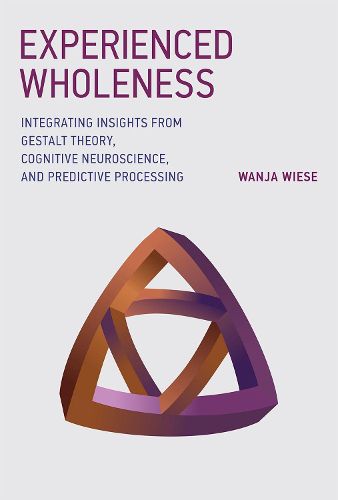Readings Newsletter
Become a Readings Member to make your shopping experience even easier.
Sign in or sign up for free!
You’re not far away from qualifying for FREE standard shipping within Australia
You’ve qualified for FREE standard shipping within Australia
The cart is loading…






An interdisciplinary account of phenomenal unity, investigating how experiential wholes can be characterized and how such characterizations can be analyzed computationally.How can we account for phenomenal unity? That is, how can we characterize and explain our experience of objects and groups of objects, bodily experiences, successions of events, and the attentional structure of consciousness as wholes? In this book, Wanja Wiese develops an interdisciplinary account of phenomenal unity, investigating how experiential wholes can be characterized and how such characterization can be analyzed conceptually as well as computationally.
Wiese first addresses how the unity of consciousness can be characterized phenomenologically, discussing what it is like to experience wholes and what is the experiential contribution of phenomenal unity. Considering the associated conceptual and empirical issues, he draws connections to phenomenological accounts and research on Gestalt theory. The results show how the attentional structure of experience, the experience of temporal flow, and different types of experiential wholes contribute to our sense of phenomenal unity. Moreover, characterizing phenomenal unity in terms of the existence of a single global phenomenal state is neither necessary nor sufficient to adequately address the problem of phenomenal unity. Wiese then suggests that the concepts and ideas of predictive processing can be used to analyze phenomenal unity computationally. The result is both a conceptual framework and an interdisciplinary account- the regularity account of phenomenal unity. According to this account, experienced wholes correspond to a hierarchy of connecting regularities. The brain tracks these regularities by hierarchical prediction error minimization, which approximates hierarchical Bayesian inference.
$9.00 standard shipping within Australia
FREE standard shipping within Australia for orders over $100.00
Express & International shipping calculated at checkout
An interdisciplinary account of phenomenal unity, investigating how experiential wholes can be characterized and how such characterizations can be analyzed computationally.How can we account for phenomenal unity? That is, how can we characterize and explain our experience of objects and groups of objects, bodily experiences, successions of events, and the attentional structure of consciousness as wholes? In this book, Wanja Wiese develops an interdisciplinary account of phenomenal unity, investigating how experiential wholes can be characterized and how such characterization can be analyzed conceptually as well as computationally.
Wiese first addresses how the unity of consciousness can be characterized phenomenologically, discussing what it is like to experience wholes and what is the experiential contribution of phenomenal unity. Considering the associated conceptual and empirical issues, he draws connections to phenomenological accounts and research on Gestalt theory. The results show how the attentional structure of experience, the experience of temporal flow, and different types of experiential wholes contribute to our sense of phenomenal unity. Moreover, characterizing phenomenal unity in terms of the existence of a single global phenomenal state is neither necessary nor sufficient to adequately address the problem of phenomenal unity. Wiese then suggests that the concepts and ideas of predictive processing can be used to analyze phenomenal unity computationally. The result is both a conceptual framework and an interdisciplinary account- the regularity account of phenomenal unity. According to this account, experienced wholes correspond to a hierarchy of connecting regularities. The brain tracks these regularities by hierarchical prediction error minimization, which approximates hierarchical Bayesian inference.